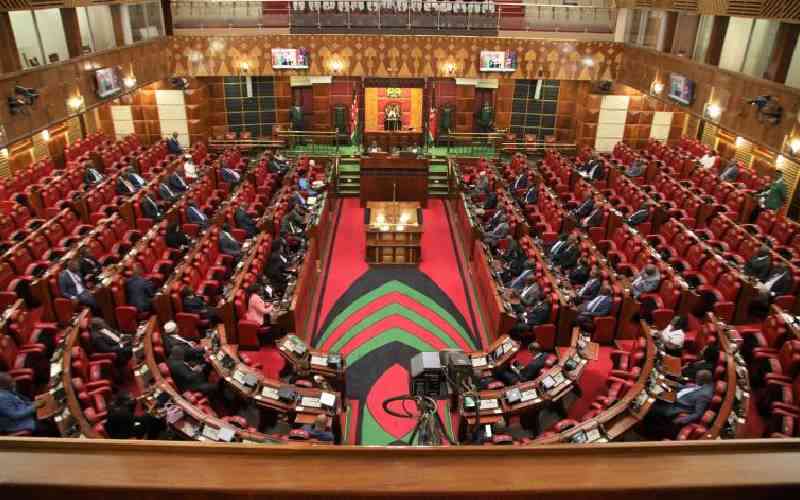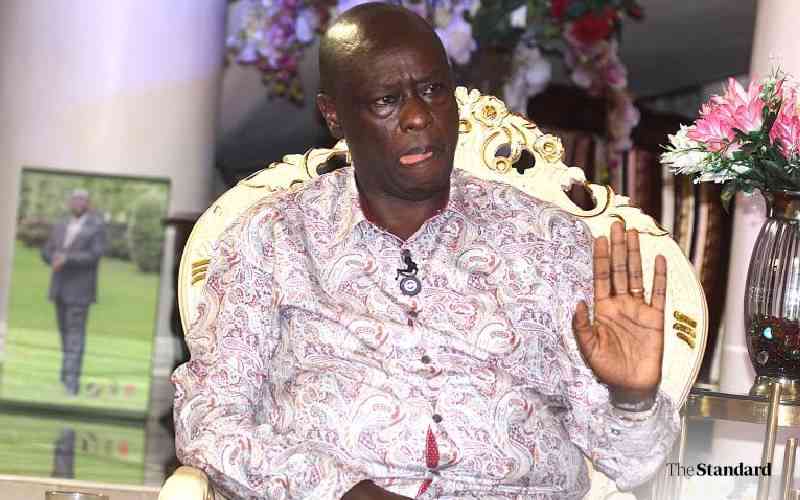Parliament has now created an avenue for President William Ruto to appoint an unlimited number of Chief Administrative Secretaries (CASs).
According to new amendments to the National Government Laws (Amendment) Bill 2023, the initial cap on the number of CASs to 22 has been removed and replaced with “as many as required”.
The Bill seeks to amend the National Government Coordination Act of 2013 to entrench the CASs’ positions.
The Justice and Legal Affairs Committee (JLAC) chaired by Tharaka Nithi MP George Murugara had, in its initial report tabled in February, proposed that the number of CASs to be 22 similar to the number of Cabinet Secretaries.
But in an addendum to the report, the committee took a U-turn and gave Ruto his much-sought opportunity to accommodate loyalists and losers of the 2022 General Election.
“In light of the varied roles that may be assigned to a CAS, JLAC noted that capping the number of CASs may affect the ability of the Executive to recruit and deploy the number of CASs required to deliver its programmes,” read the addendum.
Rarieda MP Otiende Amollo was, however, opposed to the idea, criticising the creation of the CASs positions which he said would only add to the already bloated wage bill.
Amollo was concerned that giving Ruto a free hand to appoint unlimited CASs violated Article 152 (1) (d) of the Constitution which states that Cabinet Secretaries shall not be fewer than 14 and not more than 22.
“The proposal to introduce an uncapped number of CASs is indeed an affront to the Constitution and would occasion additional expense on public finances and pose an unnecessary burden on Kenyan taxpayers,” he said.
The Bill that is in the reading stage and is to be considered as soon as the House resumes from recess has also spelt out the roles of the CASs.
It sought to have the appointments made by the President on recommendation by PSC in an exercise that takes into consideration regional and gender balance.
In its report on the National Government Administration Laws (Amendments) Bill, 2024, JLAC explained that the functions and designation of the office of the CAS will be streamlined to avoid conflicting roles with the Principal Secretary in the state departments.
The committee also proposed amendments to the Bill which will hinder the CASs from handling any parliamentary matters unlike in an earlier proposal where they would act as liaisons with Parliament and county governments on matters of concurrent mandate.
Meanwhile, National Assembly Speaker Moses Wetang’ula has allowed for the continuation of debate on the CAS Bill.
Stay informed. Subscribe to our newsletter
This, after the opposition termed the Bill unconstitutional warning that it would to a legal draw drawn with the civil society.
National Assembly minority leader Opiyo Wandayi had opposed the passing of the Bill in its current form stating that the prior Bill had led to the High Court declaring the positions illegal.
He reiterated that CAS offices and Chief of Staff as contained in the Bill are “outrightly unconstitutional and therefore, Parliament cannot proceed, and should not proceed to process it in its current form”.
Wetang’ula, in his communication to the House, however said that the courts had pronounced themselves in the question as to whether a position can be created through legislation.
He said that the courts had stated that such appointments required approval by Parliament and therefore ruled that the Justice and Legal Affairs Committee was within the law in dispensing the Bill.
“This Bill is therefore properly and legally before Parliament and can now proceed to its final stages,” the Speaker ruled.



















Discussion about this post